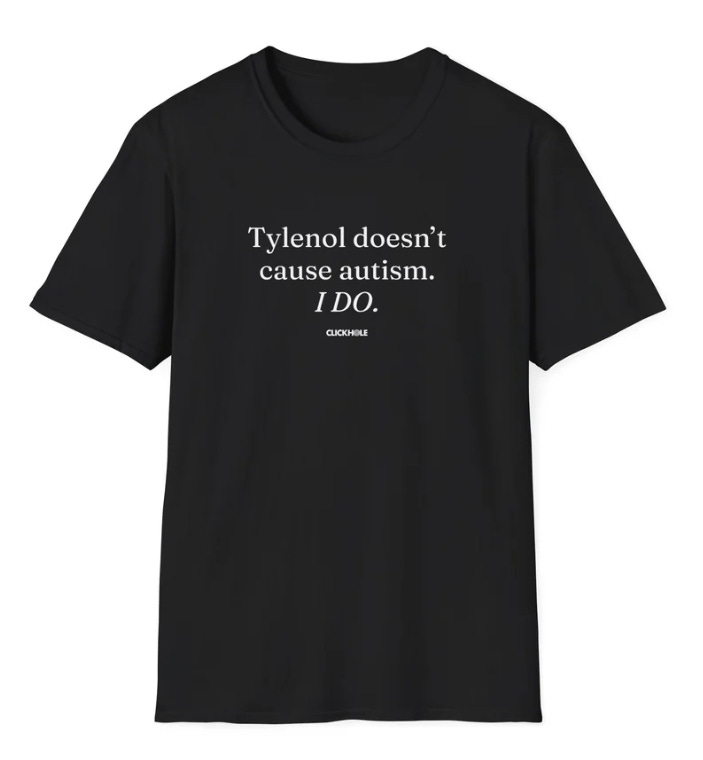I really didn’t want to write about the current administration’s latest bullshit on blaming vaccines and Tylenol on “causing” autism. I’m reminded of the classic Simpsons episode “Treehouse of Horror VI,” where Lisa and Paul Anka sing to get the citizens of Springfield to defeat giant corporate attention-hungry monsters. I wish I could just ignore all of this and it would go away!
Unfortunately that’s not going to happen. Therapy clients have already asked me about the safety of taking SSRIs when pregnant. I’m certain this is going to come up.
And even if it doesn’t, it’s important to continue to call out how much this administration just hates women. As philosopher Kate Manne eloquently stated:
“I keep coming back to the fact that, for the likes of Trump and RFK and the MAHA movement as a whole, women’s suffering during pregnancy isn’t a bug. It’s a feature.”
We already don’t take women’s pain seriously. Up to 17% percent of pregnant people report pain during c-sections, possibly the only surgery performed where we just collectively shrug at the idea that approximately one out of every six human beings who experience this operation can feel, say, a scalpel cutting into muscle, or one’s organs being moved. As you can imagine, it’s even worse for women of color. One study found that women of color were more likely to experience a failure in pain medication during either vaginal delivery or c-sections and to have their pain taken less seriously by doctors compared to white women. Another, larger study of over 9,000 postpartum patients found that Black and Hispanic women reported significantly more pain and received less pain medication compared to non-Hispanic white women.

There is also a real danger that this is just the next horrible way the administration wants to police and harm women’s bodies, especially when those bodies are pregnant. Not to mention the ableism inherent in the notion that neurodivergence is something that needs to be eradicated in the first place, or that it’s better for a fetus to suffer neural tube defects (from an untreated fever) or for children to die from vaccine-preventable diseases than to (God-forbid) risk having a child with autism.
I wrote about the tenuous connection between Tylenol and conditions like ADHD and autism four years ago. My points still stand:
There is some pretty terrible historical context for (incorrectly) blaming mothers for concerns such as autism and schizophrenia in their children (see: the “refrigerator mother theory”). Even though no one is saying, “You’re a bad mother if you take Tylenol,” it’s the implicit message behind some recommendations that may fail to strike a balance between the concerns of one person (e.g., a pregnant person’s pain) with another (e.g., the future developmental outcomes for a fetus).
[…] of course parenting choices matter for a child's health and wellbeing. However, mental health diagnoses do not occur in a vacuum. They should not be considered as immutable facts, life sentences based on a single (relatively) small decision a parent made while pregnant or after. That’s just not the way things work. We currently don't have the evidence to back up such claims, so we should stop talking about mental health concerns in those ways.
In addition to asking ourselves questions like, “Should I take Tylenol if I’m pregnant?”, we should also consider why are we asking ourselves this question. How are we, as parents, defining “bad” versus “good” outcomes? And what do our answers to this question say about us and our expectations we have for our children’s futures?
Unfortunately, I don’t think the message that you’re a bad mom if you take Tylenol is implicit anymore. They’re saying the quiet parts out loud.
So just in case you need evidence-based reassurance:
Fevers in pregnancy are bad for you and your fetus and should be treated
Your pain is real and you deserve to live without pain, even if you’re pregnant and/or a woman
People with neurodivergence are actually fucking people, not problems to be solved or political pawns (no citation needed)
And maybe I need this t-shirt?




Though it's infuriating and heartbreaking all of this has to be said (repeatedly), you've said it all so well.